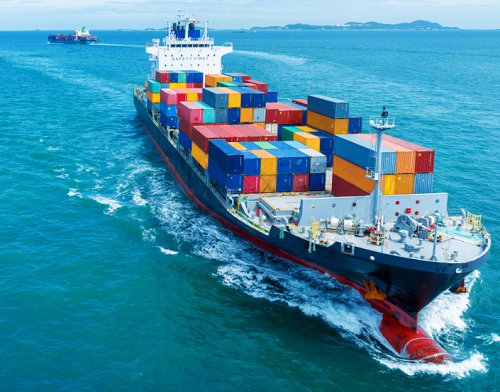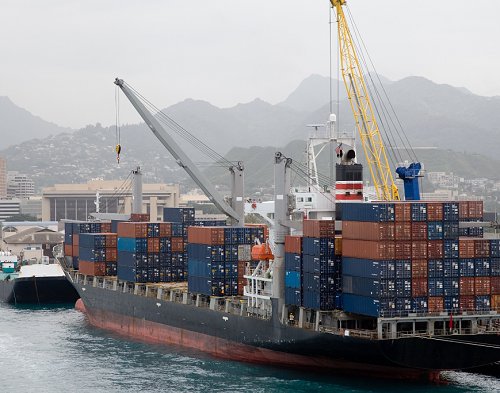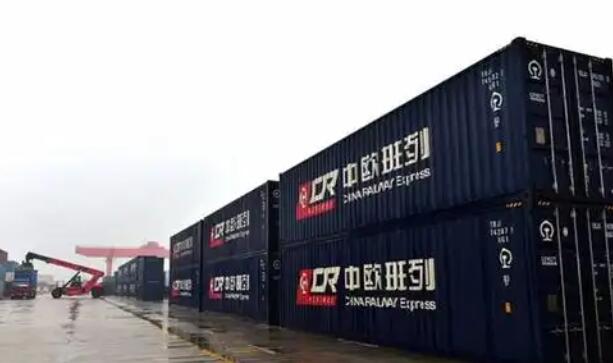Интегратор ресурсов глобальной логистической цепочки поставок
Интегратор ресурсов глобальной логистической цепочки поставок
Document transaction refers to the use of a set of documents to represent the goods. Transaction to this set of documents for the object, who got this set of documents, who is the owner of the goods. As a result, the goods are left as immovable as possible, and the documents are sold and traded at will, with the holder of the document deciding when and how the goods will ultimately be disposed of. This set of documents usually includes several core documents: 1. Bill of lading (B/L)2. Invoice (Invoice) is different from ordinary Invoice, "Invoice" in foreign trade refers to a self-made signed document indicating the name, quantity and price of the goods. Packing list a self-made signature document showing the volume, weight and packing of the consignment. 4. Other documents describing the condition of the goods, such as inspection certificates certifying the quality of the goods, certificates of origin, etc. . In a sense, the foreign trade operator is not dealing in piles of goods, but a stack of paper. Therefore, it is not surprising that a foreign trade clerk can complete a transaction without having seen the appearance of the goods from beginning to end. He just has to be careful with that pile of paper. Of course, this brings some risks, such as fraud by forging documents. However, fraud itself is a crime in all countries of the world, and there are corresponding measures to prosecute. The market is very competitive, and in many cases, price is the only factor that determines whether or not a deal is made. We often see foreign traders exporting goods at a price lower than the cost of domestic sales. Are they crazy? No. Even if it is sold at a discount to the purchase price, the foreign trade will still make a profit. This is the second key secret of Foreign Trade: The tax rebate system. Second, the key content of Foreign Trade: Tax Rebate System, export tax rebate is an important concept in foreign trade, but also the current foreign trade business in the main source of profits. Under normal circumstances, domestic procurement or pre-export prices are included in the tax price, that is, has paid the value-added tax price. If the product is used for export, this part of the tax shall not be levied, and the collected part or all of it may be returned to the exporter in accordance with the procedure. Foreign trade transactions are usually high value goods, the corresponding tax refund is also very considerable. Of course, the National Tax rebate management is also very strict, and foreign exchange management closely. Therefore, the source of foreign trade profits, to a certain extent, comes from the National Export Tax Rebate System, which is one of the most remarkable characteristics of foreign trade, but also closely related to the daily operations of most foreign trade practitioners. Foreign Trade key content three: Letter of credit transactions, international trade buyers and sellers are far away from each other, different background of the delivery of goods and payment cycle is very long. Therefore, commercial credit has become a big problem. Thus has produced one kind of foreign trade unique operation way: the letter of credit. The emergence of l/c is based on the character of "document transaction" in foreign trade. The so-called letter of credit, generally speaking, is the buyer and seller agreed in advance trading terms, such as the name, quantity, quality standards, price, time of delivery, etc. . The buyer then finds a bank (usually the buyer's bank, or with some guarantee) to act as an "intermediary" , with the bank acting as an intermediary, and the buyers and sellers no longer deal directly with the money but with the bank separately. If the seller does not deliver the goods on time, in accordance with quality and quantity, he will not get the money; if the buyer does not pay, he will not get the goods. On the other hand, there is a bank guarantee, as long as the seller delivered goods, will be able to get money. This way, not only does not occupy the buyer's funds, but also gives the seller a good credit guarantee. The document used to prove the commercial credit of both parties is called a letter of credit. Letter of credit the most basic general there are four parties: 1, importers: responsible for their own bank to open a letter of credit, called the letter of credit applicant. The importer's bank is responsible for issuing the L/C and reviewing the documents and making payment, called the issuing bank of the L/C. The exporter is responsible for the shipment under the L/C and the payment covered by the L/C is called the beneficiary of the L/C. The exporter's bank is responsible for collecting the letter of credit on behalf of thIn addition, the bank ultimately responsible for the allocation is called the letter of credit reimbursing bank, which is generally the issuing bank; it may also be advanced and charged a small fee by another bank, called the negotiating bank, which is generally the advising bank. Letter of credit is the most important and common instrument in foreign trade. In order to regulate the use of letters of credit, the International Chamber of Commerce has formulated the uniform standard UCP600, I. E. The uniform rules for international documentary credits, as the basis for use and arbitration. Small and medium-sized enterprises do foreign trade must beware of the three "traps" ! For many small and medium-sized enterprises, both want to share in international trade, and often afraid of being deceived. In the process of foreign trade, what may step on the traps, and how to break through and avoid these traps? What are the pitfalls in international trade? In the process of developing foreign trade business, small and medium-sized enterprises should first learn to identify "traps" in order to achieve the goal of prevention. THE FIRST TRAP: Foreign Buyers Demand Credit, many enterprises see the foreign to goods will be hot-headed, did not pay attention to the hidden risks of payment. For example, some buyers give credit to the business goods, goods sold again to give money, do not sell on the backlog, the risk passed on to the business. It is suggested that L/C letter of credit should be used for payment, and the letter of credit should be issued by a reputable bank, because in South America, Central America and other countries, even 3 yuan, 10 yuan to the bank to open a letter of credit. Second, the payment method is d/p (d/p) , d/a (D/A) , even if the relationship is closer to the customer, also try not to use credit. Trap 2: Buyers conceal the fact of bankruptcy protection, some buyers have filed for bankruptcy protection, but enterprises have shipped goods out, can not recover the money, after investigation found that buyers simply can not repay. But because buyers have filed for bankruptcy protection, companies can not sue such buyers at all. SUGGESTION: investigate the buyer's credit status, you can through a lawyer or credit rating agencies to investigate and assess the buyer's rating. Trap 3: The buyer after signing the contract to change the terms of the letter of credit, some buyers may modify the terms of the letter of credit after signing the contract, such as modify the quantity of goods, the difference, quality, or change the quality requirements of the product. The Enterprise may not be able to comply with the terms of the letter of credit after shipment and therefore can not recover the money. SUGGESTION: Companies Must Be careful of all contract, letter of credit terms of amendment, can seek professional advice from a lawyer. How to identify these traps? In the import and export business operations appear in these traps have a common purpose, that is to cheat money! These scams, however clever, always give off a few Flawless and are unlikely to succeed. As long as foreign trade companies and enterprises to be vigilant, master the method of identifying traps, can completely avoid falling into the trap. First, contract identification, in the import and export business, if it is difficult to get what you want in the identification of authenticity, the other side colludes with each other in several ways, cooperate with each other, and repeatedly emphasize authenticity, while foreign trade companies also want to try, can take a rigorous contract to identify each other, such as the quality of the contract, certification clauses, price clauses, inspection clauses, claim clauses, payment clauses, transport clauses, set out detailed specifications, requirements, etc. , an instrument requiring the other party to have a legal representative or a power of attorney to sign. Particular emphasis should be placed on the location of the contract in the region. In import contracts, emphasis is placed on certifying the quality standards of imported goods, evaluation clauses, protective clauses, inspection clauses, transportation requirements, etc. . In an export contract, a strict arbitration clause shall be stipulated, stipulating that the exporting country shall be the place of arbitration for the settlement of disputes and disputes. Look Out! In the import and export must sign a written contract, because the written contract has certainty, cautionary and publicity, and the role of evidence. Some of the fraud in the written contract will be exposed, foreign trade companies in signing the contract can be identified in a timely manner. Credit investigation identification, in the import and export trade, the choice of trading object is very important, must carefully examine each other's identity authenticity, find out each other's credit information. If you look at the original and copy of the business license and verify the authenticity of the original and copy, and through legal channels to its location of the executive branch and tax authorities to understand, verify their business activities and whether it is still carrying out legitimate business activities. And cargo information/registered capital/legal address, etc. . We should also examine the other party's assets credit authenticity and performance capacity, to understand the opening of the basic account and business activities. Such as production and processing capacity, export licensing, raw material supply, source of goods, etc. . The parties'credit standing is related to their ability to bear the liabilities and their good faith to perform the contract. In the credit investigation and identification, the main qualification should be clearly identified. If the other party appears as a natural person, or as a legal person or an economic organization of non-legal persons, or as a legal representative, or as a principal agent.e exporter, forwarding the documents and contacting the issuing bank, called the advising bank.
Identification methods can also be taken: 1 Bank inquiries, 2 overseas institutions inquiries, 3 industry inquiries, 4 Import and Export Chamber of Commerce inquiries, 5 related institutions inquiries. 3. risk-averse identification and risk-averse means are very important in the practice of import and export trade, for example, importers should strive to use revolving letters of credit in the trade of large-value complete equipment and in the trade of partial delivery, it's a way to avoid risk. As a general rule, the fraudster would of course object to the use of revolving letters of credit, which would allow the final payment to take place after the equipment has been properly installed or the goods have been delivered in batches, the quality of the goods supplied by the exporter is thus guaranteed to meet the requirements of the L/C. In the letter of credit opened, do not open a transferable letter of credit, to avoid the use of free negotiation letters of credit. To clearly establish the terms of the letter of credit. The exporter may consider using the confirmed letter of credit as far as possible, the correct choice of international trade terms. To prevent fraud in L/C, exporters should use group C trade terms as much as possible (such as CFR, CIF, CPT, CIP, etc.) and importers should use group F trade terms as much as possible (such as FCA, FAS, F0B, etc.) . In the transaction charter booking, avoid dealing with the "Shell Company" nature of the flag of convenience shipowners, at the same time, pay attention not to hire old ships, old ships, choose suitable cargo characteristics of the ship type, in order to ensure the safety of the goods in transit. In addition, to strictly examine documents, strengthen the counterfeit letter of credit, "soft clause" letter of credit identification, once found, should be proposed to amend the letter of credit. IV. Legal identification. In order to rectify and standardize the order of the market economy, the state has formulated a series of import and export laws and regulations. Therefore, the correct grasp and use of these laws and regulations on the operation of import and export business norms and identification, can play a positive and effective preventive role. In the export business, the relevant provisions of laws and regulations, such as the law on foreign-related economic contracts, the Foreign Trade Law, the customs law, the product quality law, the administrative measures on the verification and cancellation of export receipts, the Provisions on certain issues concerning the refund (exemption) of taxes on export goods, and the commodity inspection law, are used for comparative identification, analyze the non-standard and risk of the export business, and finally decide whether to operate or not. In the practice of foreign trade, any benefits must be obtained through the hard work of enterprises and orderly competition. As long as we are good at learning, thinking, practice, learn to use legal weapons and other effective means, we can effectively identify traps and prevent risks.









Услуги китайско-русской компании Sasha Logistics Group по международным грузоперевозкам и таможенному оформлению импорта предоставляют вам обновленную информацию о перспективах международной логистики, чтобы вы знали о новостях международной торговли и экспедирования грузов.

2025-12-25

2025-12-25